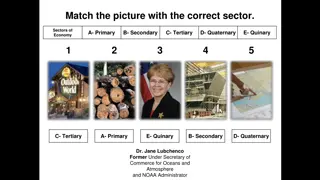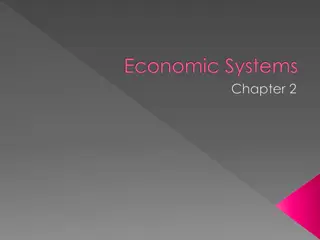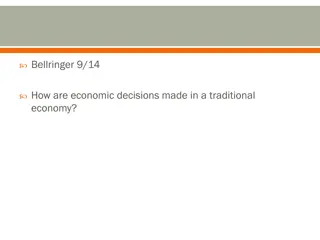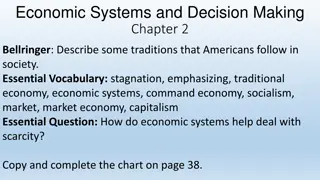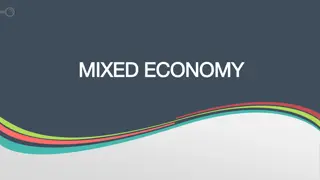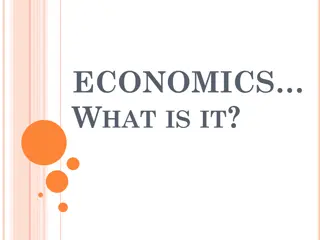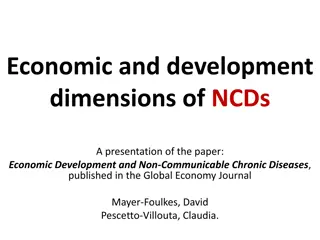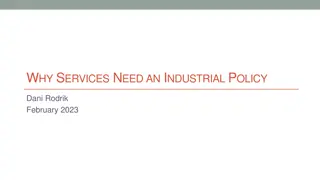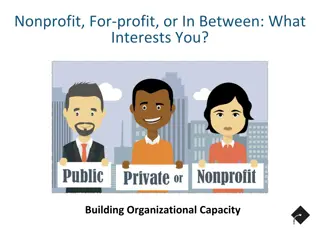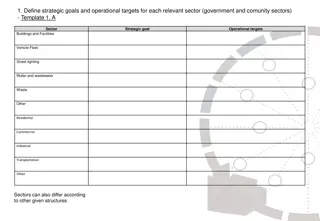Understanding Economic Systems and Sectors
An economic system is a mechanism through which the government plans and allocates resources and services. Types include capitalist, socialist, and mixed economies, each with distinct characteristics. The central problem of the economy is managing scarcity. The economic sector comprises the primary, secondary, and tertiary sectors, each playing a vital role in production and services.
Download Presentation

Please find below an Image/Link to download the presentation.
The content on the website is provided AS IS for your information and personal use only. It may not be sold, licensed, or shared on other websites without obtaining consent from the author. Download presentation by click this link. If you encounter any issues during the download, it is possible that the publisher has removed the file from their server.
E N D
Presentation Transcript
Meaning of Economic System An economic system is a mechanism with the help of which the government plans and allocates accessible services, resources, and commodities across the country. Economic systems manage elements of production, combining wealth, labour, physical resources,and business people.An economic system incorporates many companies, agencies, objects, models, and procedures. deciding
Types of Economic Systems Capitalist economy: In a capitalist system, the products manufactured are divided among people, not according to what they want but on the basis of purchasing power, which is the ability to buy products and services. This means an individual needs to have the money with him to buy the goods and services.Therefore, the commodities will not be manufactured and provided as per market forces. Socialist economy: This economy system acknowledges the three inquiries in a different way. In a socialist society, the government determines what products are to be manufactured in accordance with the requirements of the society. It is believed that the government understands what is appropriate for the citizens of the country. Therefore, the passions of individual buyers are not given much attention.
The government concludes how products are to be created and how the product should be disposed of. In principle, sharing under socialism is assumed to be based on what an individual needs and not what they can buy. A socialist system does not have a separate estate because everything is controlled by the government. Mixed economy: Mixed systems have characteristics of both the command and the market economic system. For this purpose, the mixed economic systems are also known as dual economic systems. However, there is no sincere method to determine a mixed system
Economic Sector The economic sector is divided into three economic sectors. They are as follows: Primary sector: It is that sector which relies on the environment for any production or manufacturing. A few examples of the primary sector are mining, farming, agriculture, fishing, etc. Secondary sector: In this sector, the raw material is transferred to a valuable product. A few examples are construction industries and manufacturing of steel, etc. Tertiary sector: It is also known as service sector, and it includes production and exchange of services. A few examples are banking, insurance, transportation, communication, etc.






